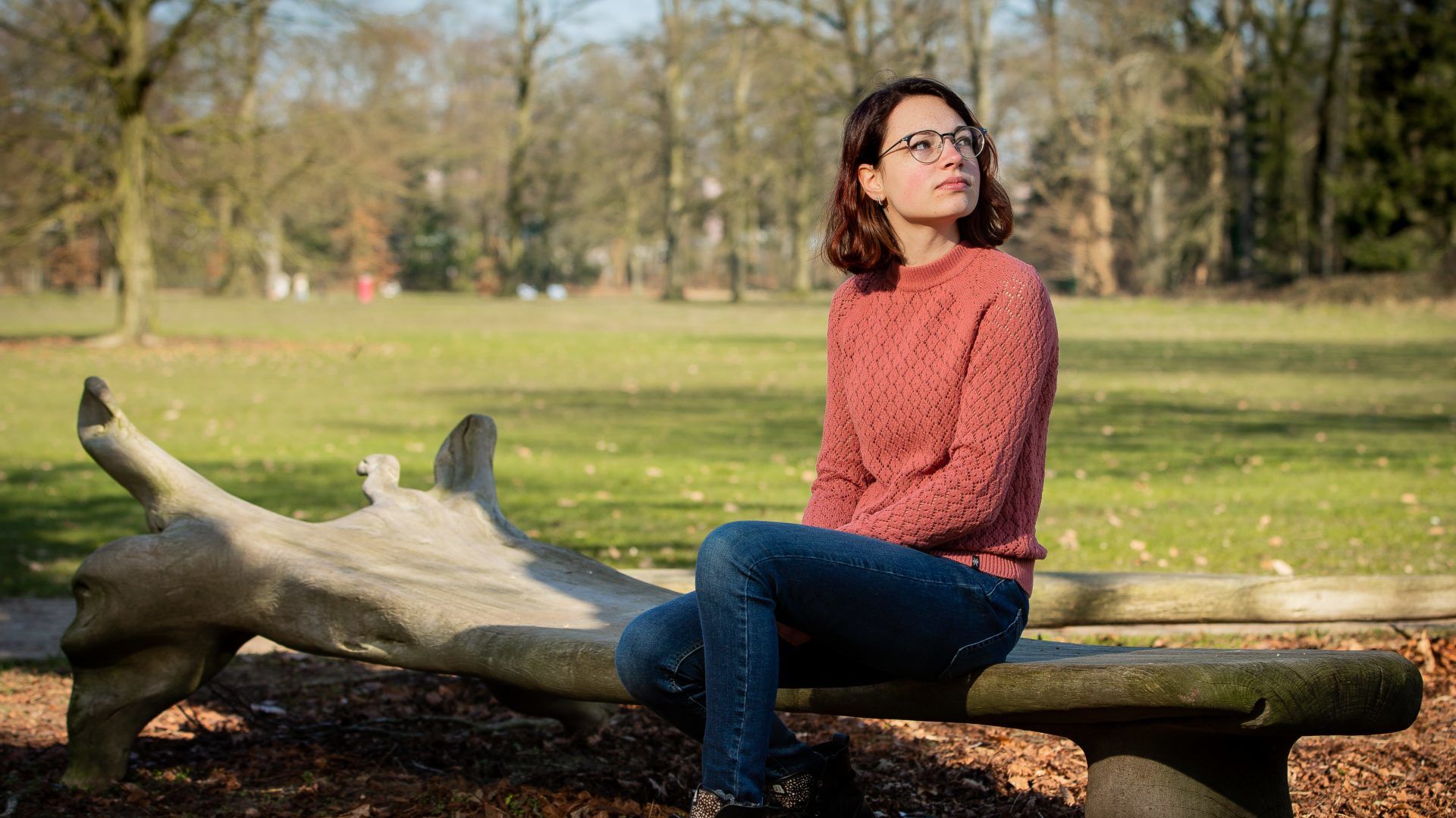With a service dog, student Eline hopes to pick up her studies again
-
 Eline Bos. Foto: David van Haren
Eline Bos. Foto: David van Haren
Eline Bos has been struggling with anxiety and depressions for years. A service dog could help her regain control of her life. She has gathered the money for this using crowdfunding. ‘Just the idea of a dog gives me hope.’
‘After finishing my bachelor and master studies, I want to help as many people as possible. But right now I‘m the one who needs help.’ This is how Eline Bos (20), a student of pedagogical sciences, begins her e-mail to lecturers and staff of Radboud University. In it, she asks for a contribution to her crowdfund campaign for a service dog.
For more than ten years, Bos has been receiving all kinds of therapies for anxiety and depression. But over the year, the list of mental problems kept growing. ‘I have seen so many therapists that I don’t know what else I can do to function again. My therapists and I think that a service dog could make a difference.’
From a fear of cycling to depression
Since the age of nine, Bos has been struggling with severe anxiety issues. ‘Whenever something happened, I often got very scared. Like when I fell off my bike: most children get over it quickly and then try to cycle again, but with me the fear was so deep that I did not dare to do it for a long time.’
After cognitive behavioural therapy she got back on her bike. But where one fear disappeared, new ones emerged, such as fears for social interaction, illness, and death. Bos was given medication for panic attacks and insomnia, but as a high school student she also developed symptoms of depression and anorexia.
Now she is in the third year of her studies. ‘The first year went reasonably well, but I quickly went over my personal boundaries. I like the fact that you’re given so much freedom at university, but it meant I was constantly studying, and I developed burnout symptoms. I now receive therapy almost every day, so there is little room for studying.’
Crisis situations
The various treatments that Bos received often only worked temporarily or only against part of her symptoms. Together with her therapists, Bos came up with the idea of getting a service dog. But that dog – or rather: the training for the dog – is expensive: over 19,000 euros. That is why the student started a crowdfunding campaign.
‘In the building where I receive anorexia therapy, there works a receptionist who always takes her dog with her. I noticed that I become much calmer when the dog is around. An ordinary dog is already great, but a service dog would help me even more. He could provide a stable basis, so that in time I might need less medication and therapy. Just the idea of a dog gives me hope, even though I don’t have one yet.’
Training a service dog takes two years. A trainer comes by regularly to practise with the dog and the owner. ‘The dog lives with you from the start, so he can immediately help during crisis situations. If I am desperate or panicking, he can sound the alarm or help me calm down. Later, he will learn to mirror emotions, for example by jumping up against you when you are restless. Then you know you need to calm down. The dog also learns to apply Deep Pressure therapy: he exerts pressure on your body in order to calm you down.’
Crowdfunding
Bos tried to have the training for a dog reimbursed by the municipality, but that request was denied, according to Bos, because of the high costs. She was, however, assigned a neighbourhood team member, who now helps her set up the crowdfunding. And with success: the campaign has raised the required 19,000 euros.
‘I knew for sure: if you don’t take action, nothing will happen. At first I mainly shared my campaign on social media with people I know, then I started mailing lecturers and staff members of the faculty as well. I get a lot of understanding and support. If I manage to get a service dog, I will hopefully be able to resume my studies and help people as an orthopaedist myself.’




